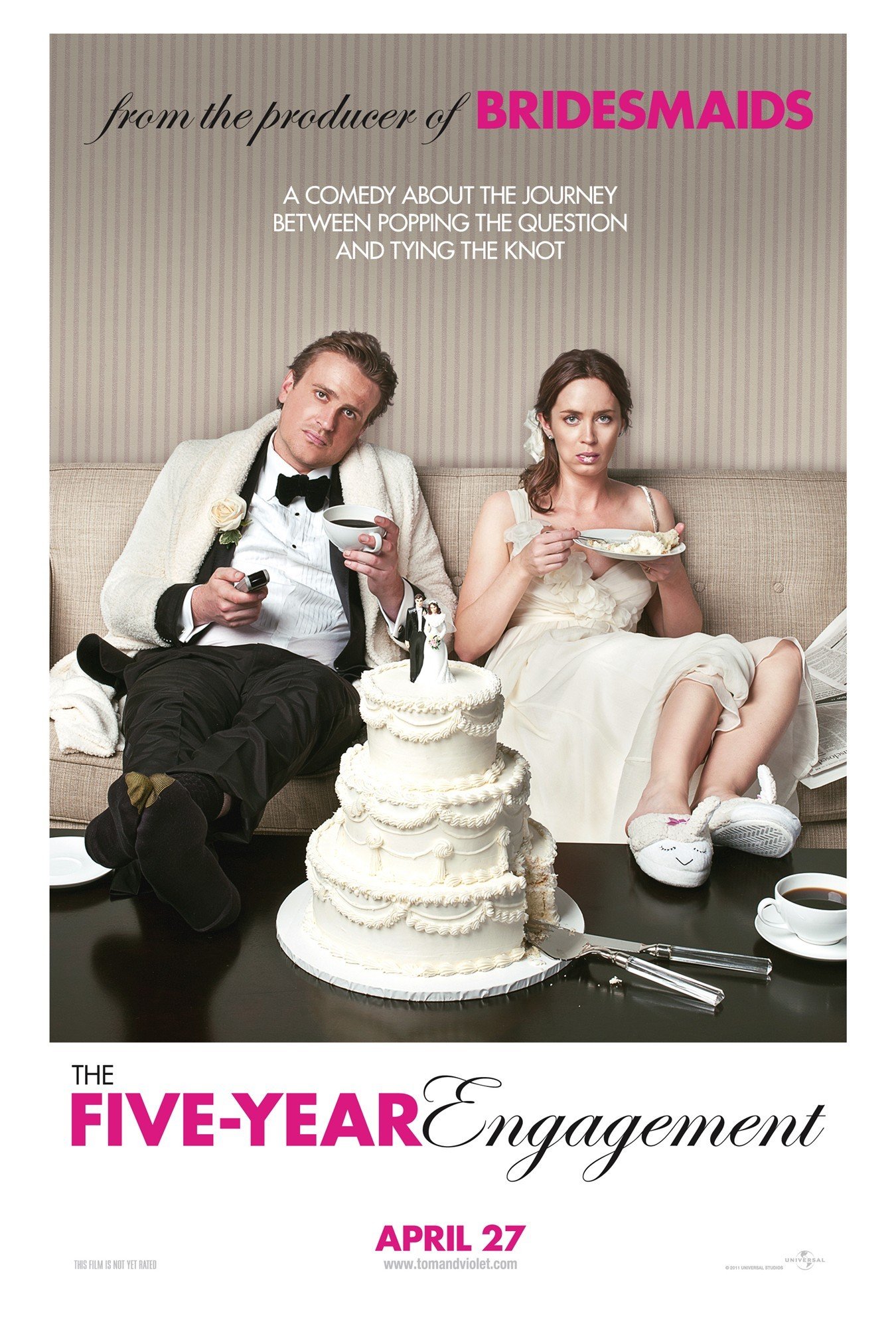“The Five-Year Engagement” is perhaps the most depressing movie about weddings ever made. Its near-hopelessness does not diminish its comedic value, but it does reveal prevalently desensitized aspects of our modern culture. While many comedies paint marriage as the end of hope and loss of freedom, it is here painted as the end goal that is ever so out of reach and at the mercy of circumstance.
Life’s twists and turns prolong engagement
Tom Solomon (Jason Segel) and Violet Barnes (Emily Blunt) are two star-crossed lovers who decide to wed after only a year of exclusive dating. A series of delays follows the announcement of their engagement, ones that reflect the unpredictability and cold fervency of life’s momentum. In the wake of Violet’s acceptance to the University of Michigan for a postdoctoral position in social psychology, Tom suggests they hold off the wedding for a two-year period in which they will move there from California and find their bearings.
Tom, who was a five-star chef in San Francisco, is confident he will find a high-paying kitchen job in Ann Arbor. He ends up working at a sandwich shop, the first stage of the downward spiral that causes him to forsake all sense of optimism. Violet, however, is thriving at the university under the direction of Winton (Rhys Ifans), the brilliant social psychology professor who exudes class and charisma. It doesn’t take the keenest mind to guess early on that Winton will be a key source of dysfunction between Violet and Tom.
The humor in “The Five-Year Engagement” works and is consistent, but takes time to find traction in the beginning. Things don’t start to pick up until Tom and Violet move to Michigan. By then, we as the audience begin to understand why these characters are worth watching. This two-year delay of the wedding turns into, you guessed it, a five-year chunk in which both Tom’s resentment and Violet’s apprehension multiply in the wake of multiple mishaps. Violet loves Tom deeply, that much is clear, but her own selfish desire to pursue academia blinds her to the fact that putting the wedding off is causing a deterioration of chemistry and happiness between them.
Same old Judd Apatow comedy formula
This all sounds like a Nicholas Sparks novel, but instead it’s producer Judd Apatow’s most formulaic comedy to date. The man who brought us “Superbad,” “Knocked Up” and “The 40-Year-Old Virgin” has marked his own brand of humor, becoming an auteur of modern comedy. This genre of comic opera prides itself on its realism and ability to take everyday conversation and spruce it up with witty animosity and cleverly constructed crudeness. Apatow has wrangled the best writers in the business to achieve this stance. Segel himself regularly writes for Apatow, having penned the “Forgetting Sarah Marshall” screenplay back in 2008. He also helped write “The Five-Year Engagement” with its director, Nicholas Stoller.
“The Five-Year Engagement” has the same feel to it as these other Apatow products, yet it has the spine of a tired, typical rom-com. There is the couple, the goal of marriage, the problems that contribute to the delaying of that goal, the falling out that must be repaired between them, the oddball characters who contribute to the strengthening or destabilization of the relationship and mental states of protagonists themselves … I could go on. Though I enjoyed the film, it didn’t feel unique the way other movies in this vein of comedy have. It dragged on near the end, and took a frustratingly long time to establish the personalities of the main characters, and even longer to develop them.
Ethical and cultural downturns of marriage illustrated
On another note, “The Five-Year Engagement” shows a pretty big hole in today’s social expectations. Here is a couple that is eager to marry, yet they are already living with one another and having sex regularly, which the director chose to openly show off. I walked out of the theater wondering why marriage was the primary goal when it wouldn’t alter their conjoined lifestyle at all. The only difference would be a legal, obligatory commitment to each other on paper.
Perhaps marriage has simply shrunk into nothing more than a cultural norm. This is one explanation as to why so many end in divorce. The couples either know too little about each other going into it, or else know too much and leave nothing to explore after the “I dos.” It is such a tragedy that God’s gift of wedlock and the beauty of true romance has been lost in popular culture. We can only hope that those who know the truth and have adopted moral navigations will uphold the sanctity of marriage and not simply treat it as the ends to a mean when it should be the means to an end.
All ethical disappointments aside, there were many aspects of “The Five-Year Engagement” that I found thoroughly charming and comically resourceful. For example, Apatow’s films have a way of utilizing the innocence of children. In one particular scene, Violet and her sister Suzie (Alison Brie) have a very adult conversation in the voices of Elmo and the Cookie Monster so as not to upset Suzie’s observant toddlers — what a magnificent way to orchestrate a scene intended for mature audiences while also assuring a factor of adorability and humor. It was this kind of ingenuity that made me enjoy this movie about delays and the flaws of people who encounter them.







